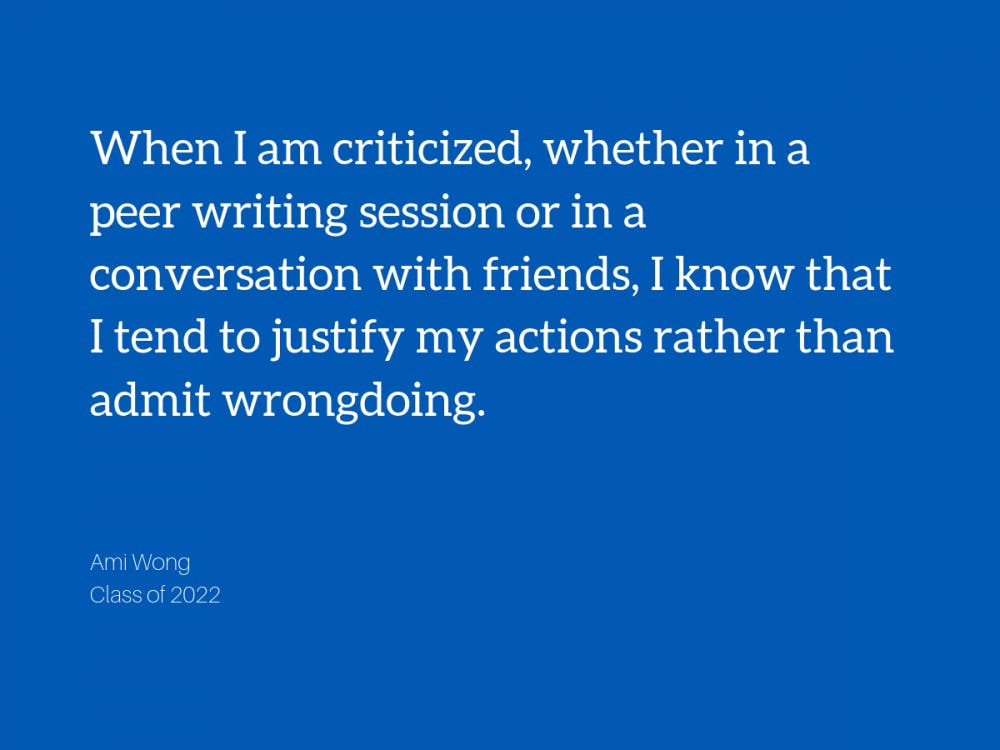In 2017, the #MeToo Movement went viral. Thousands of women shared their experiences of sexual assault and harassment, bringing global awareness to a topic that affected millions of women across the world.
As many political movements do, however, it sparked considerable controversy. Many people fired back, saying that women were being too sensitive and exaggerating—or even fabricating—their claims. Many men felt that they were being over-scrutinized and that they could no longer feel comfortable interacting with women. The #NotAllMen campaign started in response, in an effort to assert that only a minority of men are involved with sexual assault or harrassment.
The arc of the #MeToo Movement is a classic example of an awareness movement that was perceived as an attack—and consequently provoked defensiveness. Instead of acknowledging our biases, it is often easier to defend our actions. As such, even if we can recognize problematic actions in theory, it’s harder to recognize them in ourselves. So how can we let go of our natural defensiveness?
When I am criticized, whether in a peer writing session or in a conversation with friends, I know that I tend to justify my actions rather than admit wrongdoing. This is a natural knee-jerk reaction, but it shouldn’t be the end.
In writing, for example, the constructive criticism I receive allows me to improve on a piece. I have that the same is true for my interactions—getting called out allows me to improve my future behavior. As humans, it’s in our nature to believe that our actions align with our ideals. But as humans, we do make mistakes. Consequently, when confronted, our first instinct is often to defend. Instead, we should truly listen to the other person and reflect on our own actions.
Duke is a generally liberal environment. However, because many of us see ourselves as “woke” to social issues and may even represent different marginalized groups, it can be hard to admit that we may also be perpetuating “problematic behaviors” that we see in distant acquaintances, on Twitter, or in the news.
If someone points out an action that they found insensitive, then, we may jump to the idea that they are overexaggerating. For example, if a friend said that they were hurt by a joke, our initial thought might be that they are being oversensitive. If no one had the intention of saying something offensive and they are generally socially aware, then it can be hard to see where the offense is coming from.
Just because we try to be cognizant of our internalized biases doesn’t mean we always succeed. However, by blaming the others and defending ourselves, we risk jeopardizing relationships and coming off as even more insensitive.
It is also important to remember that it is not the responsibility of someone from a marginalized group to educate others. They should not have to bear the burden of explaining their experience. If they do choose to explain, then others should listen to and trust what they say and how they feel. It should never be framed as a privilege for them to be heard, nor should anyone try to judge whether their experience is valid or relevant. We should be motivated by respect.
Because they are the ones who have lived the experience, it is best to defer to their judgement. Their explanation is most likely intended to inspire reflection. Because the other person is important to them, they have chosen to face their anxiety to explain why they are hurt or offended, not because they want to criticize.
Everyone has unconscious and internalized biases. Those thoughts and biases don't correlate to being a “bad person,” but they do reflect larger structures of racism, sexism, and homophobia that are hard to recognize internally.
Being able to reflect and apologize for our wrongdoings makes us more open-minded and helps us to improve as people and as friends. By following these ideals, we can combat the systems that produced these biases in the first place.
Ami Wong is a Trinity sophomore. Her column runs on alternate Fridays.
Get The Chronicle straight to your inbox
Signup for our weekly newsletter. Cancel at any time.

